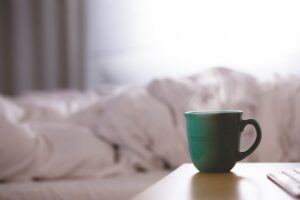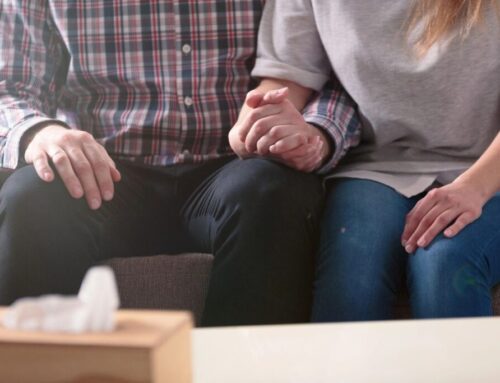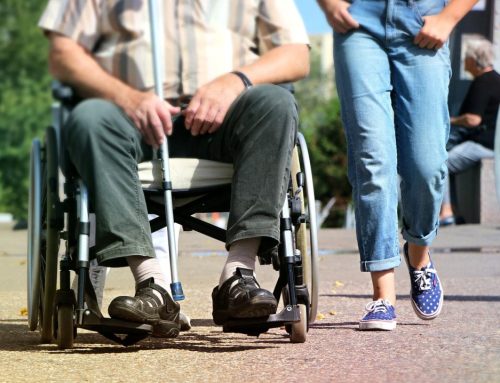 Waking Up with Anxiety? Ways to Help Reduce Morning Stress
Waking Up with Anxiety? Ways to Help Reduce Morning Stress
Nearly everyone will experience some feelings of stress or anxiety at some point in their lives. According to the Anxiety and Depression Association of America, it’s helpful to think of stress as a reaction to a threat, and anxiety as a reaction to stress.
While anxiety and stress are often used interchangeably to refer to feeling tense, worried, or nervous, the National Institutes of Health says stress is temporary or related to a specific situation — whereas people with anxiety disorders have constant feelings of worry most days for at least six months.
That stress or anxiety is often felt most heavily in the morning. When you wake up, the pressure of completing the day’s tasks may feel overwhelming, and biologically, your hormones can make that stress feel worse. Here’s what you need to know about morning anxiety and how to manage stress when you wake up.
Why do I wake up with anxiety?
Feeling anxious in the morning is common for people with and without anxiety disorders, says Mayra Mendez, Ph.D., a licensed psychotherapist.
“It wouldn’t be unusual to wake up feeling highly anxious,” Mendez says. Thinking about everything you have to accomplish during the day, from work to exercise and even socializing, can contribute to the anxiety that you feel in the morning, she says.
While thinking about the day ahead might be stressful on its own, there’s a biological process at play too: the Cortisol Awakening Response (CAR).
Cortisol is known as the stress hormone because it is involved in the body’s response to stress. During the first 30 to 45 minutes that you are awake each day, cortisol levels spike, a phenomenon known as CAR, which can make you feel more stressed in the morning.
Interestingly, some research has indicated that having a high CAR in the morning can be associated with less distress from everyday stressors throughout the rest of the day. “The study suggests that higher cortisol levels may activate a person to take action to manage the stress anticipated for the day,” Mendez says.
However, she points out that the study was small — it only had 23 participants — and focused on healthy individuals, not people with underlying anxiety disorders.
While anyone can experience morning anxiety, people with anxiety disorders are particularly susceptible. “If you’re already prone to anxiety, there can be a high level of anxiousness during the morning,” Mendez says.
And while anxiety might be useful to get healthy individuals thinking about how to manage their day, it’s likely to be more paralyzing for people with underlying anxiety disorders.
“The effect of higher cortisol further exacerbates physiological symptoms of anxiety such as increased adrenaline flow, increased heart rate, and increased blood pressure,” Mendez says. “For someone with anxiety, when cortisol levels are higher in the morning, the anxiety is greater and interferes with the person’s ability to think calmly and plan for the day ahead.”
How to reduce morning anxiety
To manage your stress or anxiety in the morning, you can try these strategies:
- Acknowledge the anxiety. “Making sure they’re mindful that this is happening” can help people cope with their feelings of anxiety, Mendez says. Knowing that there’s a biological contribution can also make it easier to face, she says.
- Eat breakfast. Low blood sugar in the morning, which is common after not eating all night, can cause symptoms like sweating and negative feelings that may mimic anxiety. Tasha Holland-Kornegay, PhD, a counselor, recommends incorporating foods with magnesium, which has been shown to help reduce anxiety. “It would be wise to include, daily, some of the food choices that are high in this mineral, such as almonds, cashews, hazelnuts, fish, bran cereals, and whole grains,” she says.
- Be cautious about caffeine. Some research indicates that people with anxiety disorders are particularly susceptible to the effects of caffeine, which is believed to worsen the symptoms of anxiety. You may want to limit your morning coffee intake or avoid it altogether.
- Follow a routine. Morning anxiety can make it difficult to get up and out. Having a solid routine for the first two hours of the day allows you to get your day started and interrupt the negative thoughts swirling in your head, Mendez says. Regular morning exercise can be especially helpful. A routine may also help you feel more in control, which can reduce feelings of anxiety. In addition, “repetition is soothing,” says Holland-Kornegay.
Finally, if you believe you have an underlying anxiety disorder, or if your morning anxiety begins to interfere with your ability to function, you should also seek treatment from a mental health professional.
Article originally published in INSIDER. Edited for clarity and length.





